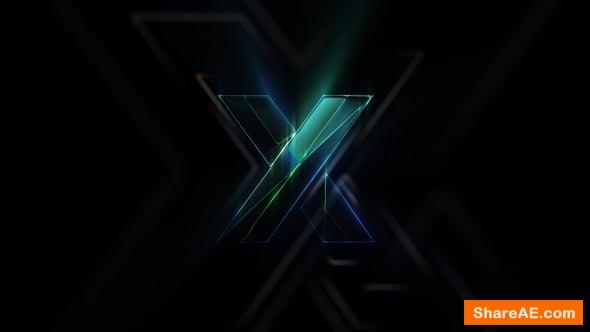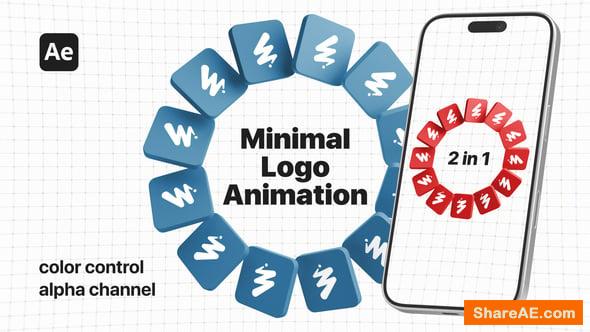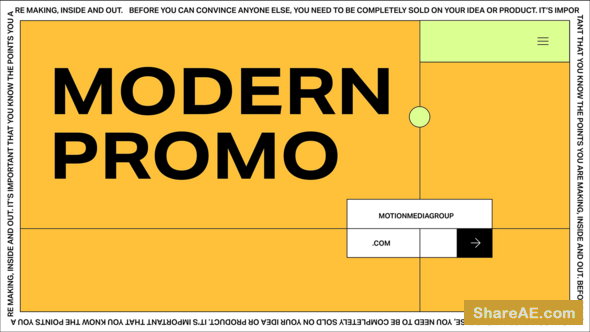The Art of Filming a Travel Video (Udemy)

The Art of Filming a Travel Video (Udemy)
Video: AVC (.mp4) 960x540 25fps | Audio: AAC 48KHz 2ch | 574 MB
The Art of Travel Video is a training video made especially for travelers who are interested in making their professional videos using SLR and action camera's
I created a complete Travel video course because I couldn't find any courses on this topic at the time I made this. I spent most of my past 4 years specializing in travel and video and thought was the right time to share my knowledge.
I've produced over 100 videos specializing in travel in destinations such as Kruger National Park (South Africa), Capetown, Singapore, Turks & Caicos, Vancouver, Maui, Bali, Hong Kong, Taiwan and more.

After Effects Guru: Keyframe Assistants (Lynda)
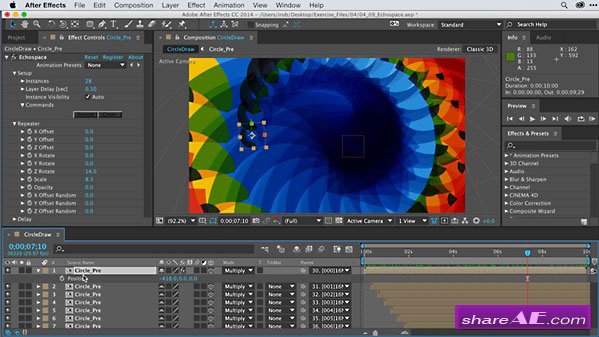
After Effects Guru: Keyframe Assistants (Lynda)
Size: 517MB | Duration: 2h 35m | Video: AVC (.mp4) 1280x720 30fps | Audio: AAC 48KHz 2ch
Genre: eLearning | Level: Intermediate | Language: English
After Effects Guru: Keyframe Assistants - Explore the tools in After Effects that help with the animation "between" the animation: keyframe assistants. These features help speed up repetitive tasks and add style to animations. This course starts with the basics: using the Keyframe Assistant tool itself to control the appearance, sequence, and timing of multiple layers within a single pre-composition.
Then you'll move into very refined, keyframe-specific adjustments using a few different tools: Convert Audio to Keyframes, the Wiggler, ease adjustments, and expressions. In the final chapter, author Ian Robinson explores some very helpful third-party assistants like LayerMonkey, MotionMonkey, PlaneSpace, and Ecospace to speed up your day-to-day workflow

Introduction to Camera Movement (Tutsplus)
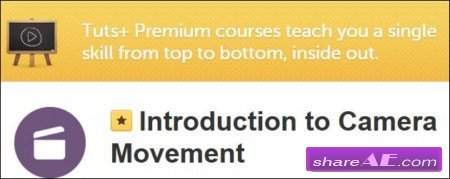
Introduction to Camera Movement (Tutsplus)
English | Audio: aac, 44100 Hz, stereo | Video: h264, yuv420p, 1280x720, 24.00 fps | 1.92 Gb
Genre: eLearning
So you want to make movies, TV shows or just a cool video for your startup, but you don’t know the first thing about camera movement. That’s right, knowing how the camera works is just one aspect of video production. Knowing how to move it is just as critical to the end result. That’s why Dave Bode is here with Introduction to Camera Movement. He’ll walk you through how to move with your camera the right way, and your results will be all the better for it

Animating With Ease In After Effects (Skillshare)
Animating With Ease In After Effects (Skillshare)
Duration: 1h 19m | Video: yuv420p, 1280x720, 30 fps | Audio: aac, 22050 Hz, mono | 2.70 GB
Genre: eLearning
You've learned the basics. Keyframes are in your toolbox. Now it's time to take the next step as an animator and unleash the power of After Effects' graph editor! This class is for anyone looking to take control of the look and feel of their motion design. Whether you've been using After Effects for years, or you've only just started learning the program, this class will be easy to follow along. I'll teach you everything you need to know about easing in and out of of every bit of motion you create, and help you develop an aesthetic that will make your work stand apart from others'..

Motion Graphics for Video Editors: Working with Storyboards (Lynda)
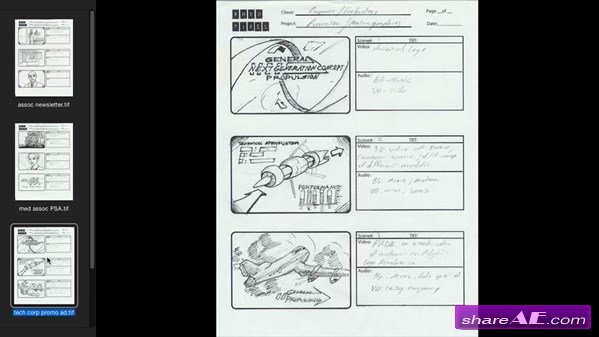
Motion Graphics for Video Editors: Working with Storyboards (Lynda)
1 GB | Duration: 1h 57m | Video: AVC (.mp4) 1280x720 30fps | Audio: AAC 48KHz 2ch
Genre: eLearning | Level: Intermediate | Language: English
Learn how to bring a storyboard to life. Rich Harrington starts this course by showing how to scan hand-drawn storyboards as well as assemble storyboards from photos or frame grabs. Once your ideas are digitized, you'll learn how to use Photoshop to enhance the artwork with additional line work and color and split your project into layered files. Then learn how to turn those files into engaging animatics in After Effects. In the final chapter, you'll create an assembly edit in After Effects, complete with a temporary music track, to help you share your artistic vision with clients.

School Of Motion - Amimation BootCamp

School Of Motion - Amimation BootCamp | 5 Gb
6 Week | Audio: aac, 44100 Hz, stereo | Video: h264, yuv420p, 1920x1080, 30 fps | 5.07GB
Genre: eLearning | Project Files
What is Animation Bootcamp?
Knowing HOW to do something in After Effects is great… but knowing WHAT to do is better. Understanding the principles of good Animation is the key to creating amazing, fluid work. This 6-week interactive experience will put you ahead of the competition and ignite your ability to create beautiful, purposeful movement no matter what you’re working on.
If you start every project with a pit in your stomach hoping that somehow you’ll “find” some good animation by experimenting with keyframes... then this course will literally change your career.

After Effects Guru: Integrating Type into Video (Lynda)
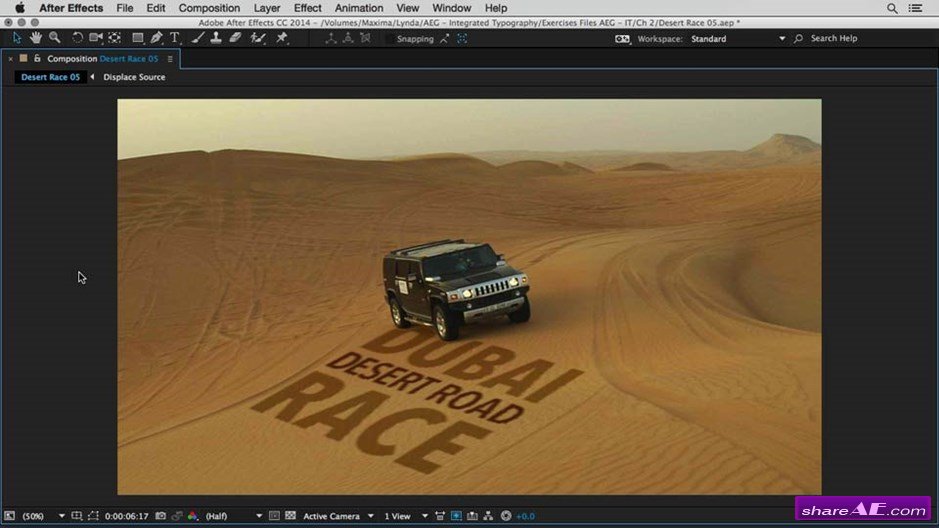
After Effects Guru: Integrating Type into Video (Lynda)
1.43 GB | Duration: 2h 36m | Video: AVC (.mp4) 1280x720 30fps | Audio: AAC 48KHz 2ch
Genre: eLearning | Level: Intermediate | Language: English
Discover how to combine text and video in After Effects in order to create visually stunning scenes. In this course, Eran Stern builds four different trailers that showcase impressive type effects.

Visual Effects Compositing in Adobe After Effects (Tuts+)
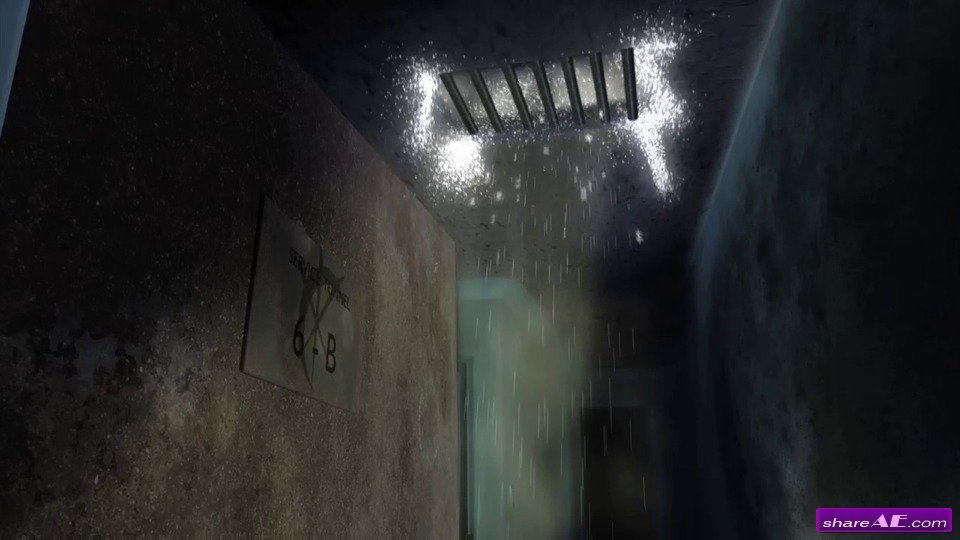
Visual Effects Compositing in Adobe After Effects (Tuts+)
Duration: 2 hours | Video: AVC (.mp4) 1280x720, 30fps | Audio: AAC 44.1KHz 2ch
Genre: eLearning | Language: English
In this course, film-maker Chris Kenworthy will give you a hands-on introduction to visual FX compositing in Adobe After Effects CC, showing how an ordinary shot can be used to build an underground tunnel, complete with sparks, smoke, and an exploding metal grate.

Creating a UI/UX Motion Study in After Effects (Digital Tutors)
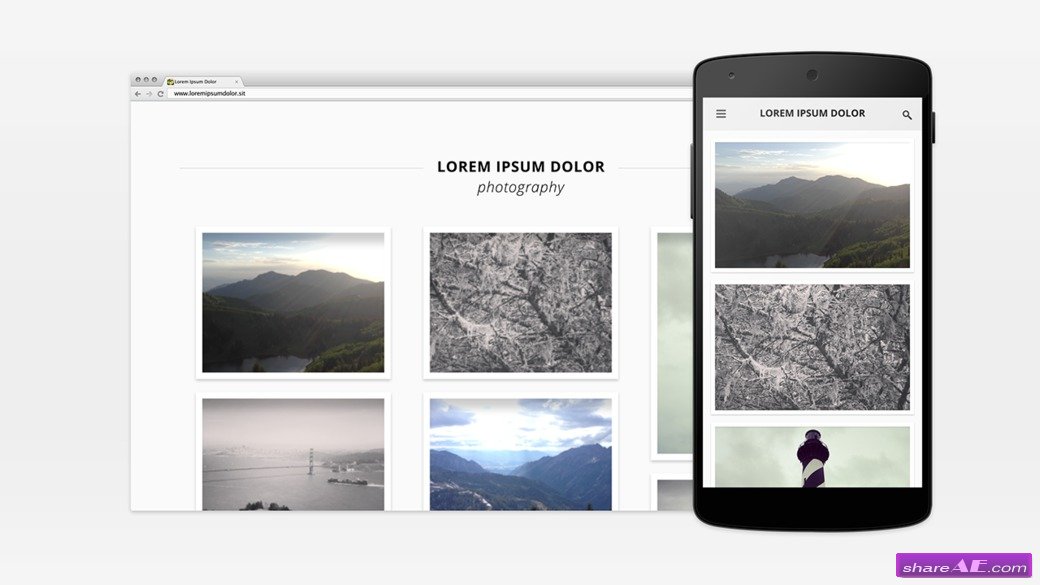
Creating a UI/UX Motion Study in After Effects (Digital Tutors)
2h 10m | Video: AVC (.mp4) 1280x720 15fps | Audio: AAC 32KHz 2ch | 1.43 GB
Genre: eLearning | Project Files Included
Throughout these lessons we'll be diving into some of the techniques that can be used within After Effects in order to create motion studies for UI and UX designs. So, in this tutorial, we explore the versatility of shape layers, use sliders and expressions to gain more control over our compositions and reduce clutter, and, by the end, learn how to take static comps and bring them to life.
As we focus on why motion design is an important part of the design process, we'll discover how motion studies can be a valuable alternative to prototypes.

Quick Start to Animation in CINEMA 4D: Volume 3 (Digital Tutors)
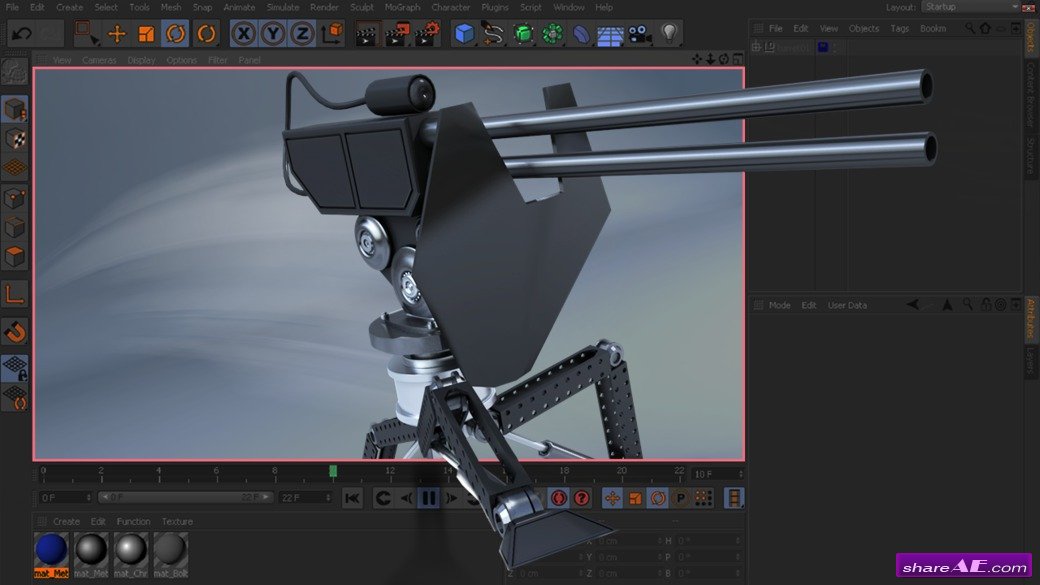
Quick Start to Animation in CINEMA 4D: Volume 3 (Digital Tutors)
English | Duration: 36m 47s | AVC 1280x720 15 fps | AAC 96 Kbps 48.0 KHz | 227 MB
Genre: eLearning | Project Files Included
Welcome to Volume 3 of the Quick Start to Animation in CINEMA 4D, a series of specially constructed tutorials meant to be followed in sequence and interspersed with valuable exercises to reinforce learned concepts.

After Effects Tips and Techniques: Rendering and Exporting (Lynda)
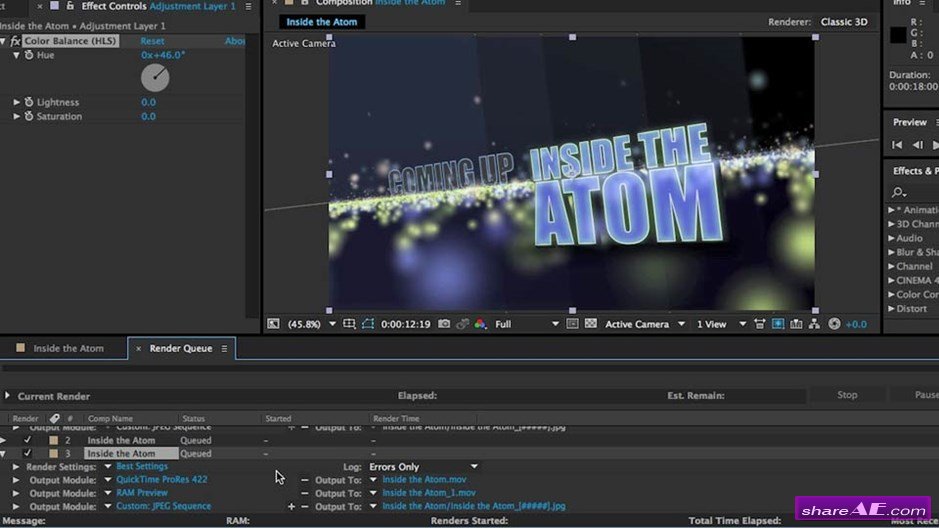
After Effects Tips and Techniques: Rendering and Exporting (Lynda)
373MB | Duration: 2h 07m | Video: AVC (.mp4) 1280x720 15fps | Audio: AAC 48KHz 2ch
Genre: eLearning | Level: Intermediate | Language: English
Get the most out of After Effects, with Eran Stern's After Effects Tips and Techniques. This installment is dedicated to rendering: increasing the quality and speed of your final export, as well as the RAM previews and prerenders you generate along the way. Eran shows how to optimize your system settings, addresses issues like flickering and upscaling, and introduces production-ready workflows that will increase your productivity and speed up interactions with complex projects.

After Effects CC 2014 Essential Training (Updated Nov 03, 2014)
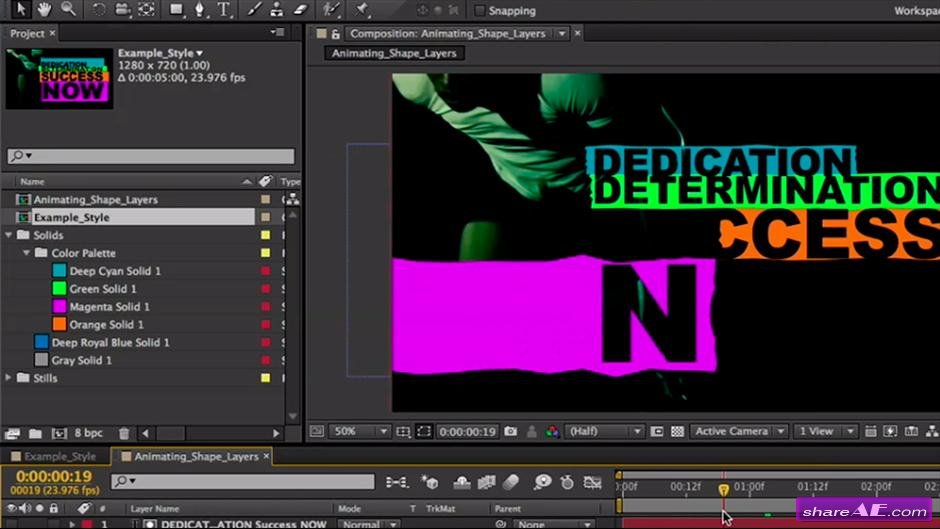
After Effects CC 2014 Essential Training (Updated Nov 03, 2014)
Delve into the world of motion graphics, keying, and compositing in After Effects CC. In this course, Ian Robinson lays out six foundations for becoming proficient with After Effects, including concepts such as layers, keyframe animation, and working with 3D. To help you get up and running with the program, the course begins with a project-based chapter on creating an animated graphic bumper. Next, explore the role layers play in compositions and find out how to add style to your projects using effects and graphic elements. Last, see how to build 3D objects with CINEMA 4D Lite, as well as stabilize footage, solve for 3D cameras, and paint in graphics with the Reverse Stabilization feature.

Motion Graphics for Video Editors: Working with Type (Lynda)
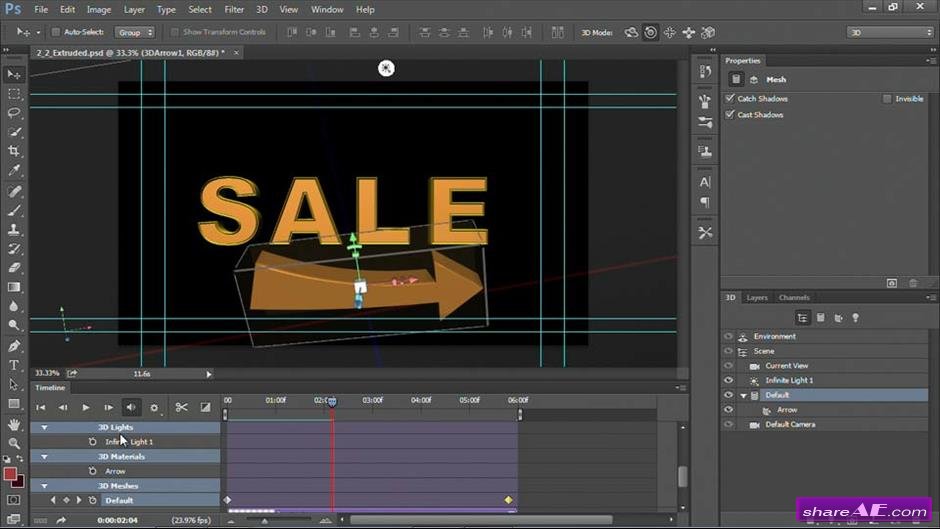
Motion Graphics for Video Editors: Working with Type (Lynda)
Text is used in video projects all the time, whether it's in lower thirds, title sequences, or credits. As a video editor or aspiring motion graphics artist, it's crucial to learn the fundamentals of working with type: compositing type, animating type, and creating 3D text and logos. In this course, Rich Harrington shows how to perform these tasks in Photoshop, After Effects, and Premiere Pro, three programs that are tightly integrated and make it easy to share and hand off assets. Watch and learn how to add a new dimension to your video projects, with type.

Premiere Pro CC Building On The Fundamentals (Train Simple)
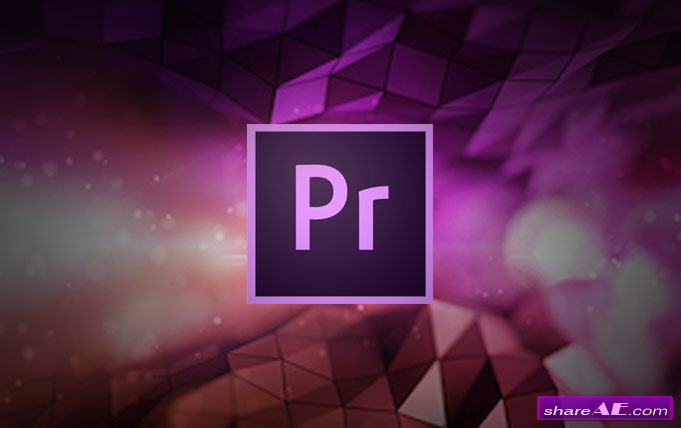
Premiere Pro CC Building On The Fundamentals (Train Simple)
In this course, Premiere Pro CC Building on the Fundamentals, Chad Troftgruben will introduce you to various editing techniques and working with effects. Additionally you'll review how to work with audio and color correct your footage. This course also introduces more advanced options like creating a milt-cam project as well as best practices for exporting your footage.

Creating a 3D Time Warp Effect in Maya and After Effects (Digital Tutors)
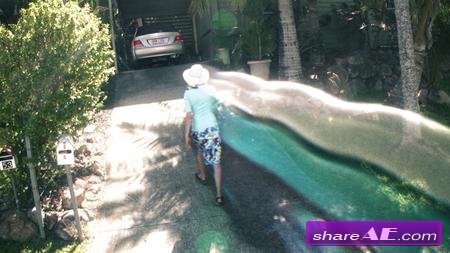
Creating a 3D Time Warp Effect in Maya and After Effects (Digital Tutors)
1h 49m | Video: AVC (.mp4) 1280x720 15fps | Audio: AAC 32KHz 2ch | 1.67GB
Genre: eLearning | Project Files Included
In this Maya and After Effects tutorial we'll create the entire pipeline for simulating a complex 3D time warp effect. Topics covered include setting up the live action shoot, rotoscoping techniques using mocha in After Effects and Matchmoving in PFTrack. We'll also learn about 3D Camera Stabilization in Maya, creating our effect using custom MEL tools and compositing techniques in After Effects.
By the end of this Maya and After Effects training, you'll have the knowledge to create your own 3D time warp effect for your projects.

After Effects CC Fundamentals (Train Simple)

After Effects CC Fundamentals (Train Simple)
Adobe After Effects is the leading desktop application for creating motion graphics and special effects for video. In this Fundamentals course, Chad Troftgruben will get you comfortable with the After Effects interface so you can start working efficiently inside of the program. You will learn how to get the most of the tools inside of After Effects as well as applying effects to your footage. Next you'll review how to color correct footage and how to mask areas successfully and easily. Motion Tracking, Chroma Keying, and Rotoscoping are all topics covered in this course.

Animated Concept Storyboards Using Photoshop and After Effects (Digital Tutors)
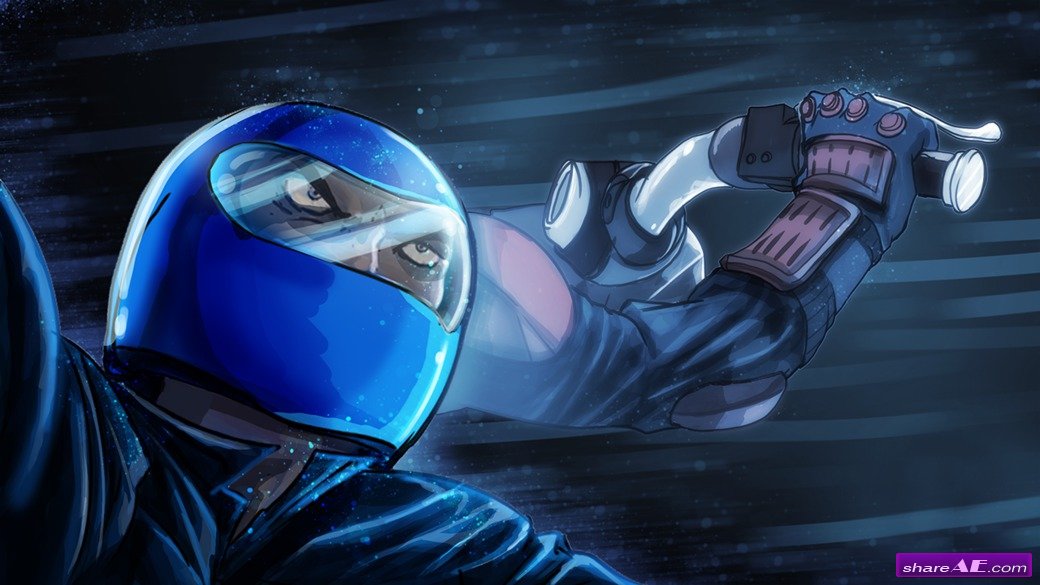
Animated Concept Storyboards Using Photoshop and After Effects (Digital Tutors)
2h 50m | 1.17 GB | Project Files: Included | Software used: Photoshop CC , After Effects CC
Genre: eLearning
Throughout these lessons we'll go over the steps necessary to creating concept storyboards. There are times when static storyboards aren't enough to articulate a scene to producers or directors.

Integrating Motion Graphics with Live Action Footage in Cinema 4D and After Effects (Digital Tutors)

Integrating Motion Graphics with Live Action Footage in Cinema 4D and After Effects (Digital Tutors)
English | .mp4 | h264 542 kbps | 1280 x 720 15fps | AAC 44,1kHz stereo | 1h 50m | 1.03 Gb
Genre: eLearning | Project Files Included
In this series of tutorials, we’ll learn the process for building motion graphics that integrate with
live action footage. We’ll also learn how to composite those motion graphics with the footage in a way that can make even the most graphically styled elements feel real.
We begin by learning how to bring footage into CINEMA 4D so that it can be animated over. We then use a bit of geometry to matchmove the basketball in the live shot. After getting the position and rotation of the real ball matched, we learn how to use sweeps and MoGraph tracers to create beautiful trailing graphics.

Integrating Titles and Graphics into Footage in After Effects (Digital Tutors)
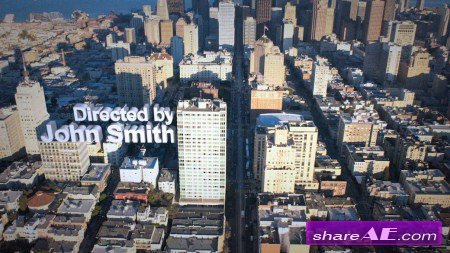
Integrating Titles and Graphics into Footage in After Effects (Digital Tutors)
1h 32m | Video: AVC (.mp4) 1280x720 15fps | Audio: AAC 32KHz 2ch | 2.57 GB
Genre: eLearning | Project Files Included
In this series of tutorials, we'll talk about some different ways to integrate titles and graphics into moving footage. We will start with a problematic shot containing a large body of water that is hard to track. We'll use the 3D camera tracker built into After Effects to give us tracking information.

AFX210: Introduction to After Effects Scripting (FXPHD)
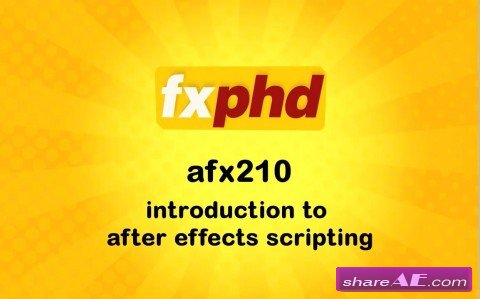
AFX210: Introduction to After Effects Scripting (FXPHD)
AVC/H.264 1154x720 12fps 219kbps | AAC 44100Hz mono 63kbps | 1.06
Genre: eLearning | Project Files Included
This course, taught by Lloyd Alvarez, will provide an introduction to the main scripting tools available in Adobe After Effects versions CS3 and above. Scripting automates tedious tasks that can be done by hand in After Effects so a good working knowledge of After Effects is strongly recommended before taking this course. After Effects can be scripted in ExtendScript (Adobe’s extended implementation of javascript.) on both mac and windows as well as Applescript on the mac and Visual Basic on Windows. This course will only cover ExtendScript because of its cross-platform nature and larger resource base due to its javascript foundation.

Your First Day Using mocha in After Effects (Digital Tutors)

Your First Day Using mocha in After Effects (Digital Tutors)
1h 14m | Video: AVC (.mp4) 1280×720 15fps | Audio: AAC 32KHz 2ch | 1.44 GB
Genre: eLearning | Project Files Included
In this series of tutorials, we will be taking a look at our first day in mocha AE. We’ll start by learning how to access mocha from inside of After Effects. We’ll get familiar with the interface and the different tools we’ll be using throughout the course. We’ll learn how powerful mocha is by tracking a simple planar surface.

Using the 3D Camera Tracker and Integrating Graphics in After Effects (Digital Tutors)

Using the 3D Camera Tracker and Integrating Graphics in After Effects (Digital Tutors)
English | Duration: 2h 3m | AVC 1280x720 15 fps | AAC 96 Kbps 48.0 KHz | 1.45 GB
Genre: eLearning | Project Files Included
In this series of tutorials, we'll learn how to use After Effects' 3D Camera Tracker and how to integrate assets into the shot. We'll be doing an augmented reality style project to learn these techniques.

30 Days to Learn Adobe After Effects (TutsPlus.com)

30 Days to Learn Adobe After Effects (TutsPlus.com)
English | .ISO | 1.047 GB
Genre: Video Training
Interested in learning to work with video? Get started off right! In just 30 Days, VinhSon Nguyen will take you from AfterEffects newbie to designing and working with your own video and animation. VinhSon provides practical demos and walks you through the basics of AfterEffects on up to advanced editing techniques.

CINEMA 4D R16 Essential Training (Lynda)
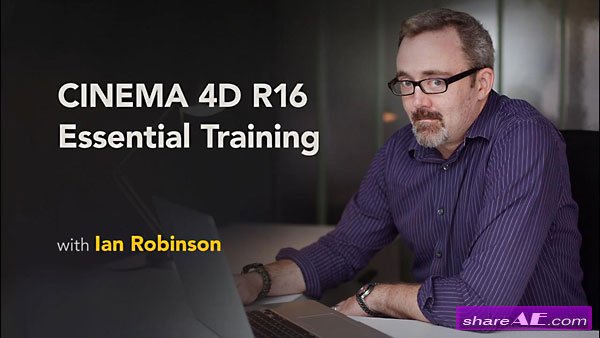
CINEMA 4D R16 Essential Training (Lynda)
9h 35m | Sep 19, 2014 | .MP4 | Audio: aac, 48000 Hz, stereo | Video: h264, yuv420p, 1280x720, 29.97 fps(r) | 2.12 GB
Genre: E-learning
CINEMA 4D R16 (C4D) is a vital tool for motion graphics artists, visual effects (VFX) artists, and animators alike. Whether you're just starting out in one of these fields or migrating to C4D after many years in another program, your training should begin here. In this course, author Ian Robinson covers key C4D concepts, such as object hierarchies and relationships, and the essential skills for modeling with primitive objects, splines and generator objects, subdivision surfaces, and polygons. He also shows how to give your 3D models realistic-looking surfaces—the kind of surfaces that make objects seem bumpy, metallic, shiny, or even transparent—with materials and lighting. The final chapters of the course cover keyframe animation, camera movement, and C4D's popular MoGraph module. Dive in and learn what CINEMA 4D has in store for you.

Using MoGraph Effectors to Create a Sports Opener in CINEMA 4D (Digital Tutors)

Using MoGraph Effectors to Create a Sports Opener in CINEMA 4D (Digital Tutors)
English | AVC (.mp4) 1280x720 15fps | AAC 32KHz 2ch | 3.59 Gb
Genre: eLearning
In this series of tutorials, we will learn the process from start to finish of creating a sports opener in CINEMA 4D, animating it using the powerful MoGraph toolset, and compositing the shot in After Effects. We begin by building the set from scratch in CINEMA 4D in such a way that we save a lot of time through the use of MoGraph. This also saves time in being able to quickly animate our pieces. We add more models that help to make the piece feel more customized. After adding the textures we move onto the lighting process where we learn a few tricks for lighting a scene well without making your render take much longer than it needs to. After rendering in CINEMA 4D, we move into After Effects where we use CINEWARE to extract our CINEMA 4D placeholders, lights, and camera. We can then easily continue the compositing process. Our shot is completed with realistic looking screens, lens flares, and other lens effects. By the end of the course, you'll learn how to start with nothing and end with a fully completed 3D motion graphics piece you can be proud of!

Creating Movie Trailer 'First Look' Graphics with Cinema 4D and After Effects (SkillFeed)
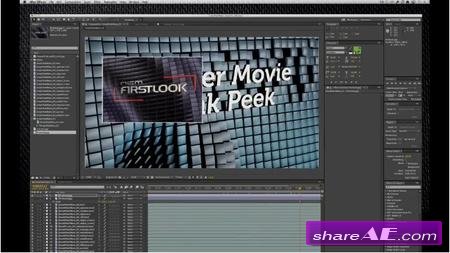
Creating Movie Trailer 'First Look' Graphics with Cinema 4D and After Effects (SkillFeed)
Software used: Cinema 4D, After Effects | Level: Intermediate | 356.17 MB
Genre: E-learning

Creating a Logo Animation using Cinema 4D and MoGraph (SkillFeed)

Creating a Logo Animation using Cinema 4D and MoGraph (SkillFeed)
English | .MP4 | aac, 44100 Hz, stereo | h264, yuv420p, 796x540, 30.00 fps® | 294 MB
Genre: E-learning
A multipart series takes the user step-by-step through creating a finished 3D Animated logo design.

Utilizing Effects and Presets in After Effects (Digital Tutors)
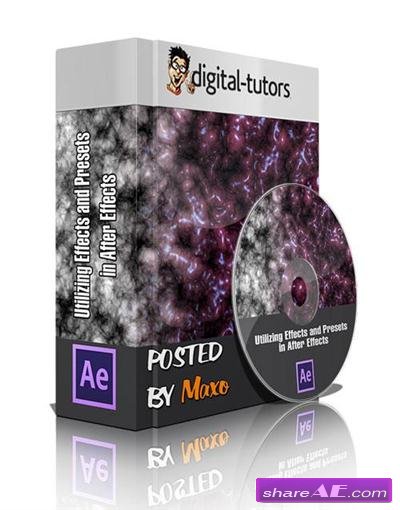
Utilizing Effects and Presets in After Effects (Digital Tutors)
50m 38s | Video: AVC (.mp4) 1280x720 30fps | Audio: AAC 32KHz 1ch
Genre: eLearning | After Effects CC | Project Files Included | September 14, 2014
In this series of tutorials, we will be getting familiar with effects and presets in After Effects. We will start by adding multiple effects to a solid to get an understanding of how stacking order can change the appearance of an effect. Once we’re happy with how everything looks we will learn how to save our effects as a preset that we can use again in other projects. We will also take a look at how we can save presets for keyframes as well as shape layers, layer styles, layer properties and even expressions. And finally, we’ll take a look at how we can browse the existing After Effects presets, alter them for our project and then save them as our own user preset. By the end of this course, you will have an understanding of how effects work and will be able to save time in your workflow by using presets to easily apply commonly used effects and properties to your projects.

Creating Cartoon Characters in CINEMA 4D R15 (Digital Tutors)
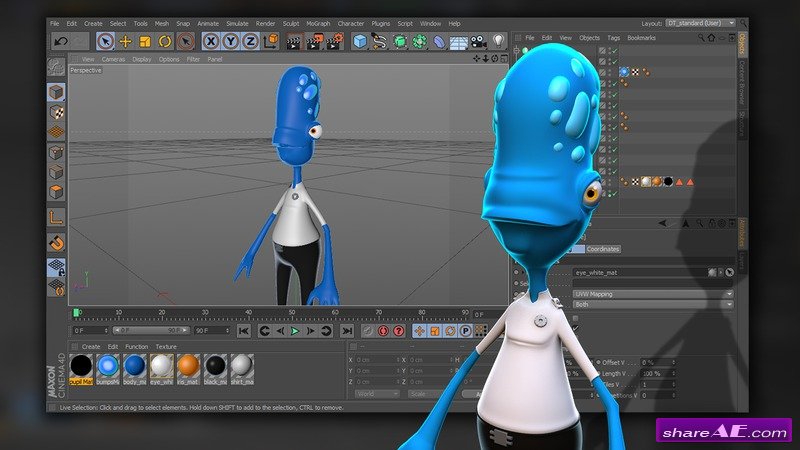
Creating Cartoon Characters in CINEMA 4D R15 (Digital Tutors)
2h 32m | Video: AVC (.mp4) 1280x720 15fps | Audio: AAC 32KHz 2ch | 824 MB
Genre: eLearning | Project Files Included
Cartoony, stylized characters are prevalent in the world of tv and film CG, as well as video games. These types of characters are a lot of fun to build, but they do present their own set of challenges.

Premiere Pro Guru: Multi-Camera Video Editing (Lynda)
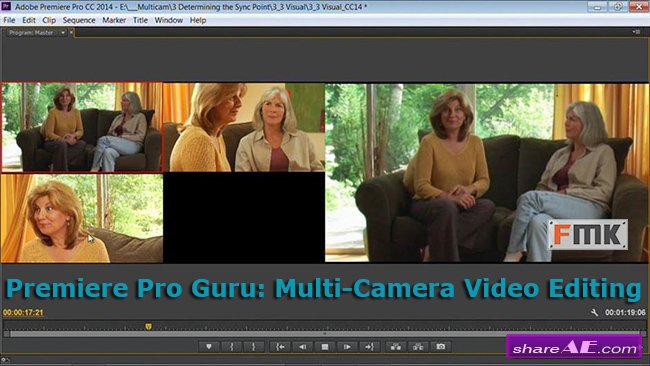
Premiere Pro Guru: Multi-Camera Video Editing (Lynda)
1h 55m | .MP4 | Audio: aac, 48000 Hz, stereo | Video: h264, yuv420p, 1280x720, 15.00 fps(r) | 3.95 GB
Genre: E-learning
There are many reasons for shooting with multiple cameras. Perhaps it's to save time or achieve multiple angles. Or it might be to capture what's happening across a large area, like a sports arena or the stage during a concert. Luckily for editors, Adobe Premiere Pro supports editing and syncing footage from multiple cameras in situations like these. The multicamera editing process in Premiere is similar to live switching that occurs in mobile studios and newsrooms, and helps speed up the post-processing workflow. In this course, Rich Harrington reviews that workflow, showing you how to ingest footage and align it properly, as well as finish your video with color-correction and color-matching techniques.

Udemy - After Effects Genius
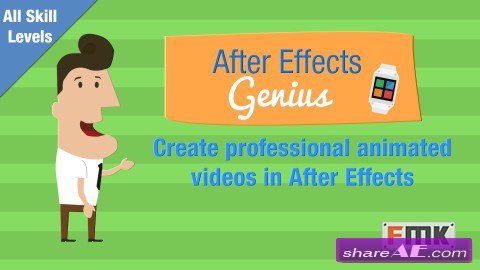
Udemy - After Effects Genius
After Effects Genius is a step by step video course teaching anyone from completely newbies to intermediate users in after effects, how to create professional promotional videos.

From Cinema 4D to After Effects: A Professional Workflow (Tuts+ Premium)
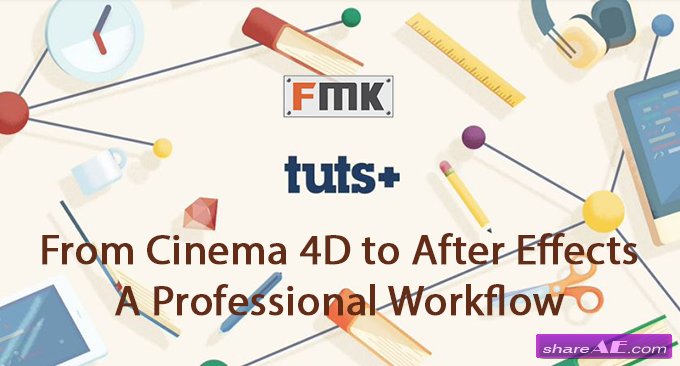
From Cinema 4D to After Effects: A Professional Workflow (Tuts+ Premium)
Software used: Cinema 4D, After Effects | Project Files: Included | 1.05 GB
Join professional filmmaker Christopher Kenworthy and learn how to combine Adobe After Effects with Cinema 4D Lite to create a more professional workflow for your animations or movie scenes. In this course you'll learn how to set up the workflow, how to create textures, and how to combine colors, lights and cameras to create more complex animations. If you're not sure how these two applications can work together, then this course is for you!

Motion Graphics for Video Editors Creating Backgrounds (Lynda)
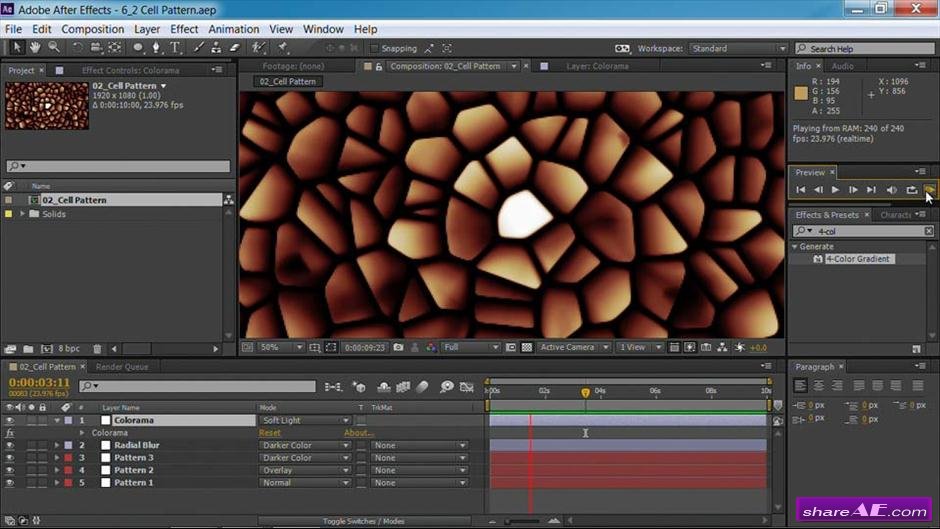
Motion Graphics for Video Editors Creating Backgrounds (Lynda)
Duration: 2h 32m | Video: AVC (.mp4) 1280x720 30fps | Audio: AAC 48KHz 2ch
Genre: eLearning | Level: Beginner | Language: English
Nearly every video project needs a background, whether it's an elaborate background for a chroma key set or simply a lower third. This course shows you how to create your own still and motion backgrounds using a few simple ingredients: the files that come with the course and from other sources on the web, and the built-in tools in Photoshop and After Effects. No special assets or plugins required! Rich Harrington introduces practical and easy-to-implement techniques that are suitable for video editors of all levels, and can be used to quickly add texture and style to your next project.

Creating Vibrant Fractal Transitions in After Effects (Digital Tutors)
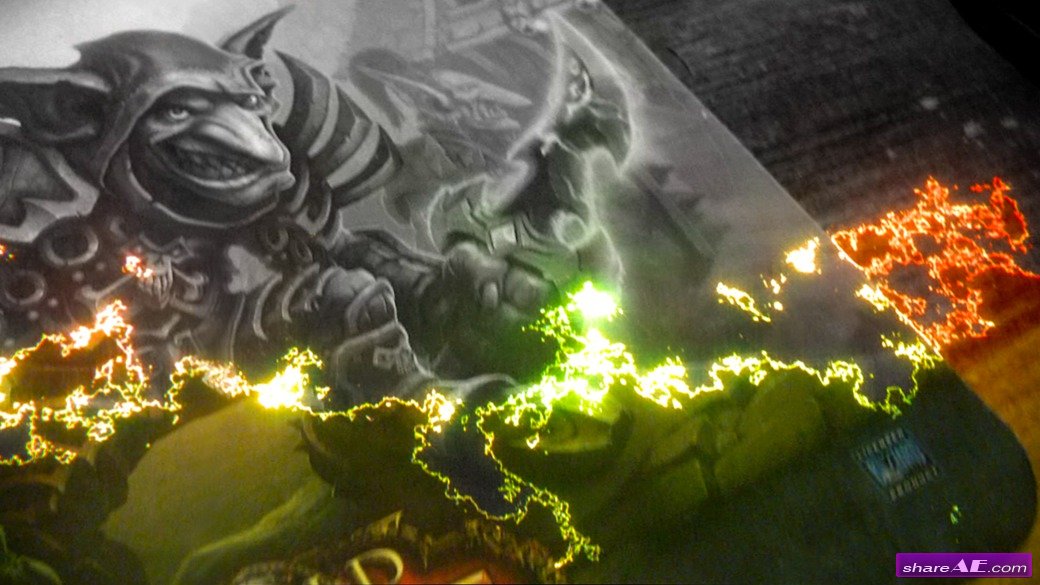
Creating Vibrant Fractal Transitions in After Effects (Digital Tutors)
Duration 2h 24m | Level Advanced |Project Files Included |15FPS MP4 | 1.59 GB
Genre: eLearning | Level: Intermediate
In this series of tutorials we will composite a shimmering fractal reveal in After Effects utilizing assets generated in Maya.We will be matchmoving a live action plate and creating proxy geometry of the scene in Maya. We will then export the geometry as OBJ assets and assemble them in After Effects. We will animate a fractal pattern to act as a matte for our transition and apply that to our 3D geometry using the Element 3D plug-in. To create vibrant glows we will be using plugins such as Radium, Sapphire, and Starglow whilst taking advantage of linear color-space to achieve the best results possible.

Smoke Fire and Explosions in Adobe After Effects (Tutsplus)

Smoke Fire and Explosions in Adobe After Effects (Tutsplus)
English | 1h 10m | AVC 1280×720 15 fps | AAC 128 Kbps 44.1 KHz | 1.8 B
Genre: eLearning | Level: Intermediate
In this course, Christopher Kenworthy will show you how easy it is to create smoke, fire, and explosions using Adobe After Effects—without relying on third-party plugins. By learning some simple techniques and built-in filters, you'll be creating realistic-looking smoke, fire and explosions for your film footage in no time.

Working with Shape Layers in After Effects (Digital Tutors)
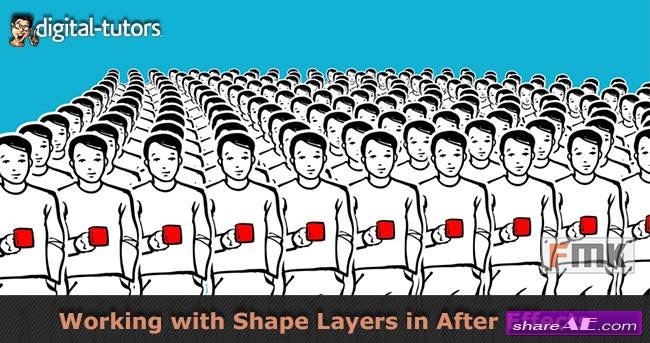
Working with Shape Layers in After Effects (Digital Tutors)
English | 1h 10m | AVC 1280×720 15 fps | AAC 128 Kbps 44.1 KHz | 416 MB
Genre: eLearning | Level: Intermediate
In this series of tutorials, we will talk about some of the different ways you can create and utilize shapes in After Effects. We will start by going over the basics of using the shape tools to make shape layers and the difference between parametric and Bezier paths. We'll explore the control we have over polygons and stars that can create an endless possibility of intricate shapes. We'll talk about using the add menu to create new shapes or add shape attributes to our shape layers. Next we'll import vector artwork from Illustrator and convert to shapes so that we can utilize the repeater. We'll tell a story with shape morphing and learn the importance of defining the first vertex. We'll also get an understanding of the importance of stacking order within our shape layer. Finally, we'll combine shape attributes to create a particle like effect that is mainly being driven by changing the properties of a stroke.

Tips for Motion Graphics Lighting and Materials in CINEMA 4D (Digital Tutors)

Tips for Motion Graphics Lighting and Materials in CINEMA 4D (Digital Tutors)
English | 1h 10m | AVC 1280×720 15 fps | AAC 128 Kbps 44.1 KHz | 446 MB
Genre: eLearning | Level: Intermediate
In this series of tutorials, we'll go over tips for lighting and materials in CINEMA 4D. These tips are common things you might encounter as you are creating motion graphics and you need a quick fix or a better way to make something look more realistic.

Giant Spider Compositing in Cinema 4D
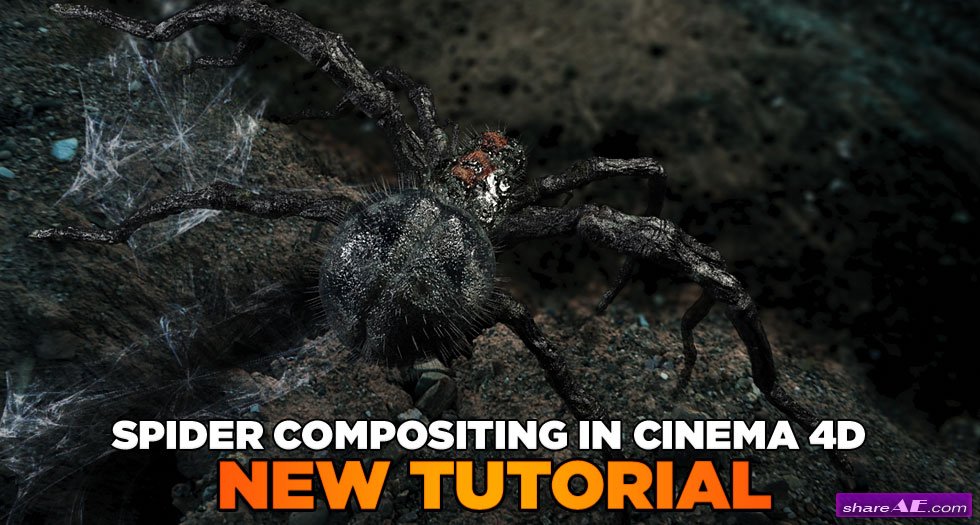
Giant Spider Compositing in Cinema 4D
Format: Mp4 | After Effects and Cinema 4D Project Files | 775 Mb
Genre: Elearning
This week we are going to teach step by step how to make a giant spider, in cinema 4d
We are going to explain the entire process that includes ,modeling , sculpt, paint the texture , create the scene , easy rigging , animation , render ,composition, post production And other tips that will help you much on your projects in visual effects.

Easy Color Grading Course with Davinci Resolve (Udemy)
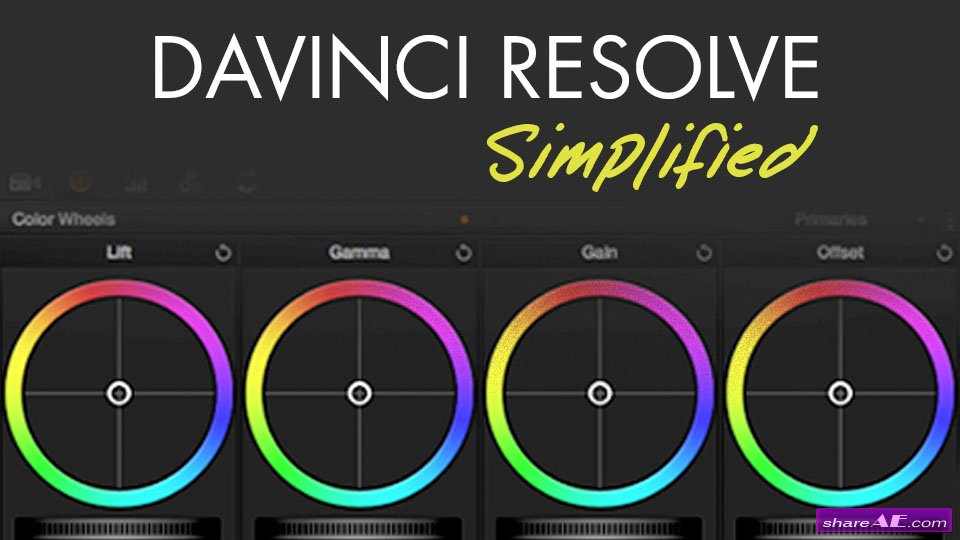
Easy Color Grading Course with Davinci Resolve (Udemy) | 978 MB
Genre: Elearning
This course is the fastest and easiest way to fully understand Davinci Resolve (constantly updated to latest version). Davinci Resolve is the Hollywood standard for color grading. It's used in most Hollywood films such as Avatar and Prometheus.
This Davinci Resolve Software training course teaches you how to control, enhance and adjust the colors of your film, to convey your story. One of the most important aspects of determining the look of, for example an action movie, is color grading. Just imagine the movie, The Matrix, colored the same way as a comedy movie. It will look very wrong. And that's why coloring is a part of the storytelling process. And now, that Davinci Resolve Lite is for free, you have the same tools used by Hollywood, to create a film-look with your footage.

Unlocking the Power of the Roto Brush Tool in After Effects (Digital Tutors)
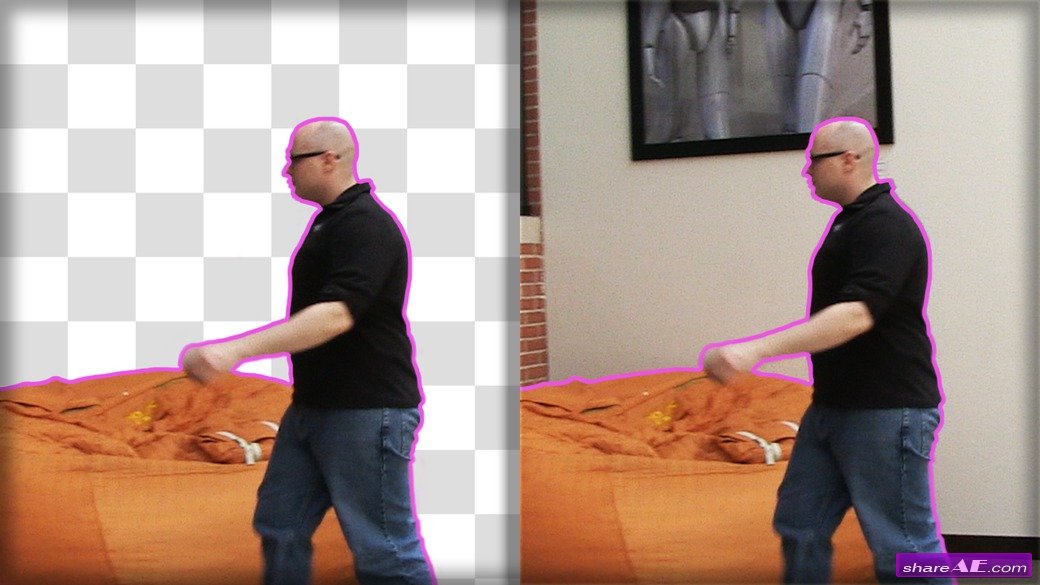
Unlocking the Power of the Roto Brush Tool in After Effects (Digital Tutors)
ISO | Durring 1h 34m | Project Files Included | Author Laura Smith | English | 964.69 MB
Genre: E-learning
In this series of lessons, we'll be learning how to use the Roto Brush Tool. A lot of people try to use the Roto Brush Tool without knowing how it works. They jump in, start painting one frame after the other and depending on their patience level, they soon give up.

Getting Started with CINEWARE in After Effects (Digital Tutors)
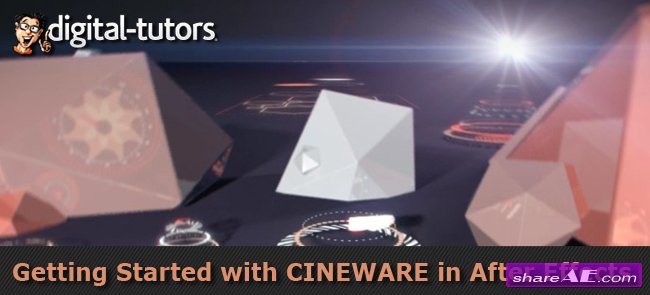
Getting Started with CINEWARE in After Effects (Digital Tutors)
English | Audio: aac, 44100 Hz, stereo (und)
MP4 | Video: h264, yuv420p, 1440x900, 30.00 fps(r) (und) | 1.75 GB
Genre: Video Training
In this series of tutorials, we will learn the powerful new workflow between After Effects and CINEMA 4D using the CINEWARE effect.
We take the first lesson to layout the differences between all this new terminology, then we jump right into creating our project by learning how to use CINEMA 4D projects in After Effects. We learn ways to speed up your workflow with the render settings and how to use cameras interchangeably back and forth between both software.

VFX Techniques: Tracking Objects Onto A Face with AE (Lynda)
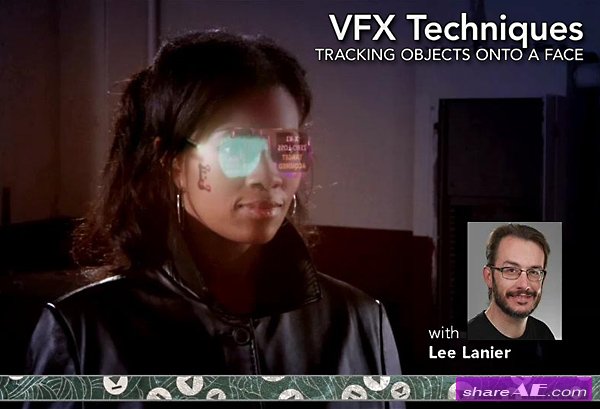
VFX Techniques: Tracking Objects Onto A Face with AE (Lynda)
English | 2h 42m | Intermediate | 1 GB | Author with Lee Lanier
Genre: E-learning
VFX Techniques introduces common yet critical visual effects techniques that are used in film and television shows on a regular basis. This installment shows how to build complex composites with Adobe After Effects and mocha, where motion graphics are mapped to live-action footage of an actor. Author Lee Lanier starts by combining rotoscoping and effects to digitally apply makeup to an actor to disguise motion tracking marks. Then discover how to transfer footage into mocha and generate planar tracking data that you can use to motion track graphics to the moving face of the actor. Plus, learn how to build and adjust motion graphics to create the look of a virtual tattoo and a pair of holographic heads-up glasses.

After Effects Guru: Tracking and Stabilizing Footage (Lynda)
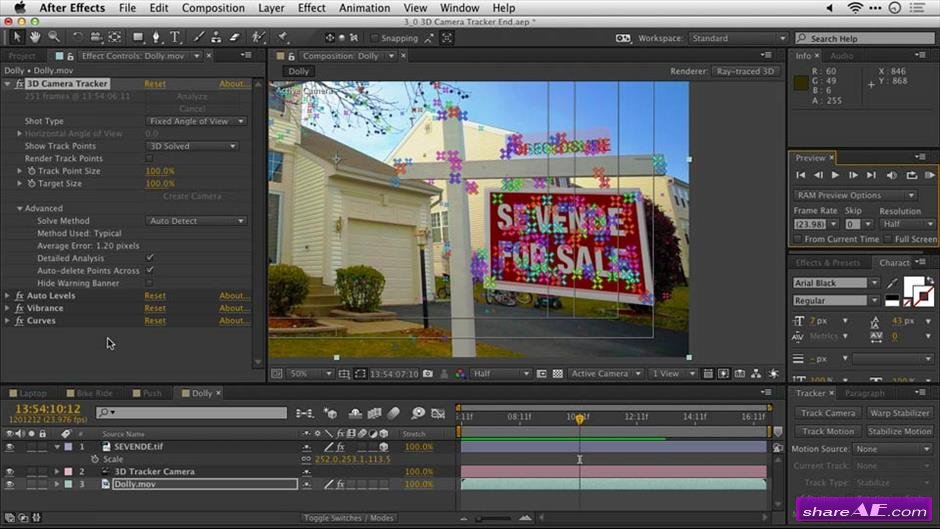
After Effects Guru: Tracking and Stabilizing Footage (Lynda)
Duration: 2h 01m | Video: AVC (.mp4) 1280x720 30fps | Audio: AAC 48KHz 2ch
Genre: eLearning | Level: Intermediate | Language: English
Whether it's removing camera shake or tracking a camera's movement, After Effects has you covered. You can apply a variety of techniques to smooth out the camera movement in a shot, using the After Effects Warp Stabilizer VFX effect, and track the camera to add objects into a scene realistically. Rich Harrington shows you how in this installment of After Effects Guru.

Animating a Vector City with a 3D Camera in After Effects CS6 (Digital Tutors)
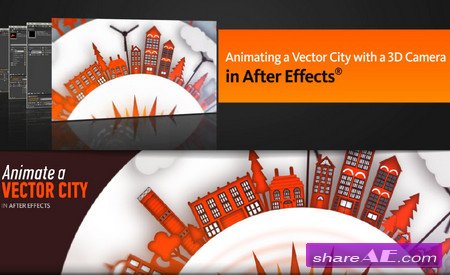
Animating a Vector City with a 3D Camera in After Effects CS6 (Digital Tutors)
English | AVC 1280x720 15 fps | AAC 188 Kbps 44.1 KHz | 1.19 GB
Genre: eLearning
In this series of tutorials, we will go over the steps needed to create a rotating city animation in After Effects.
We will start by going over some of the initial setup you need to know for how the Illustrator files should be saved and arranged. Then we bring those files into After Effects and learn lots of time saving tips and techniques for animating these layers. We go over some camera animation as well as 3D animation of individual layers. Towards the end of the training, we go over some compositing techniques that make our 2D illustrator layers look much more life-like, as if they had been filmed with a real camera.

VFX Techniques: Creating a CG Flag with After Effects and CINEMA 4D (Lynda)
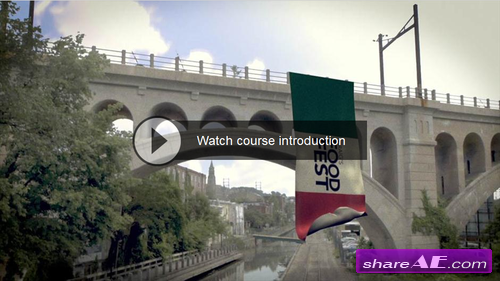
VFX Techniques: Creating a CG Flag with After Effects and CINEMA 4D (Lynda)
ISO | English | 1h 55m | Intermediate | 983.7 MB | Author with Joseph Lowery
Genre: E-learning
CINEMA 4D's fantastic rigid body and cloth systems and the powerful CAMERATRACKER plugin in After Effects are a great combination for tracking and compositing cloth-like materials in live-action footage. In this course, Craig Whitaker will guide you through the entire post-production process for creating a computer-generated flag from designing a mockup from reference material and tracking the camera movement to constructing the flag using CINEMA 4D's cloth simulation tools and compositing it back into the scene with After Effects. Each step of the process is rich with lessons applicable to similar situations CG and compositing artists will face in the real world.

Tutsplus - Adobe Premiere Elements Essentials
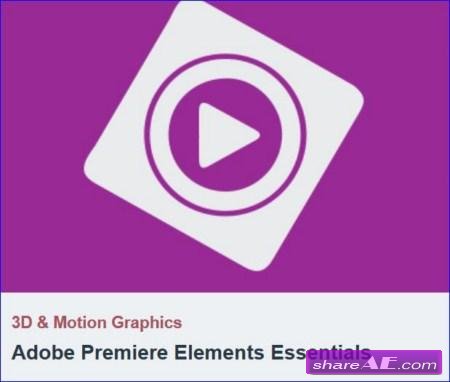
Tutsplus - Adobe Premiere Elements Essentials
English | .MP4 | h264, yuv420p, 1280x720, 24.00 fps(r) | aac, 44100 Hz, stereo | 2.82 GB
Genre: E-learning
Adobe Premiere Elements is the entry-level video editing application of choice for amateur video enthusiasts.
Whether you like to make home videos or would like to add something extra to your creative work, this course will teach you what Adobe Premiere Elements can offer you and how to work with it. Instructor Jordy Vandeput will teach you how to get started with Adobe Premiere Elements, and some neat tips and tricks to add to help you get creative quickly.

VFX Techniques: Digital Set Extension (Lynda)

VFX Techniques: Digital Set Extension (Lynda)
1h 47m | Intermediate | Apr 15, 2014 | 2 GB
Genre: e-Learning
Learn how to digitally extend a set with After Effects. Lee Lanier shows how to remove a tricky green screen with the KEYLIGHT plugin and a custom luma matte, motion track a new background with appropriate parallax, digitally dress a set with static artwork, fabricate shadows, and relight the footage to create a realistic result.

Element 3D Essential Training (Lynda)
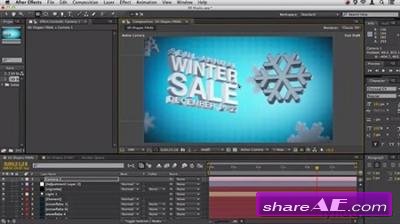
Element 3D Essential Training (Lynda)
Author Chad Perkins | subject Video, Motion Graphics | software: After Effects CS6, Element 3D V1 | level Appropriate for all
Duration 4h 57m | released Feb 11, 2013 | Project files not included | 1.22 GB
Element 3D is a third-party plugin that allows actual 3D models to be created from scratch or exported to Adobe After Effects, and rendered and composited at a high level of quality and impressive speed. Element 3D Essential Training walks you through the entire workflow and feature set. Author Chad Perkins starts with an introductory project to get you comfortable with the overall workflow in Element 3D, including transforming objects, applying materials, and lighting scenes. The course then details how to create 3D text and shapes, apply translucency and reflections, animate objects, and polish your projects with effects like ambient occlusion and motion blur. The course concludes with an advanced project that leverages each of these techniques.

Creative Development: Compositing a Lunar Environment in After Effects CS6 and Maya (Digital Tutors)
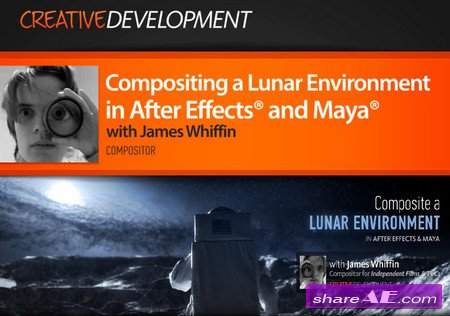
Creative Development: Compositing a Lunar Environment in After Effects CS6 and Maya (Digital Tutors)
English | AVC 1280x720 15 fps | AAC 188 Kbps 44.1 KHz | 1.95 GB
Required Software: After Effects CS6, Maya 2013, PFTrack 2011, Photoshop CS6
Genre: eLearning
In this tutorial we'll be covering the entire pipeline of compositing live action footage into a lunar environment. Keying and compositing will be done inside of Adobe After Effects, matchmoving in PFTrack 2011 with the recent node based workflow, texturing in Photoshop, and all 3D processes done in Autodesk Maya using mental ray. By the end of this training, you'll have the knowledge to take live action, green screen footage and composite it into a realistic 3D environment with a re-animated matchmoved camera.

Toon.FX In After Effects (VFXbro)
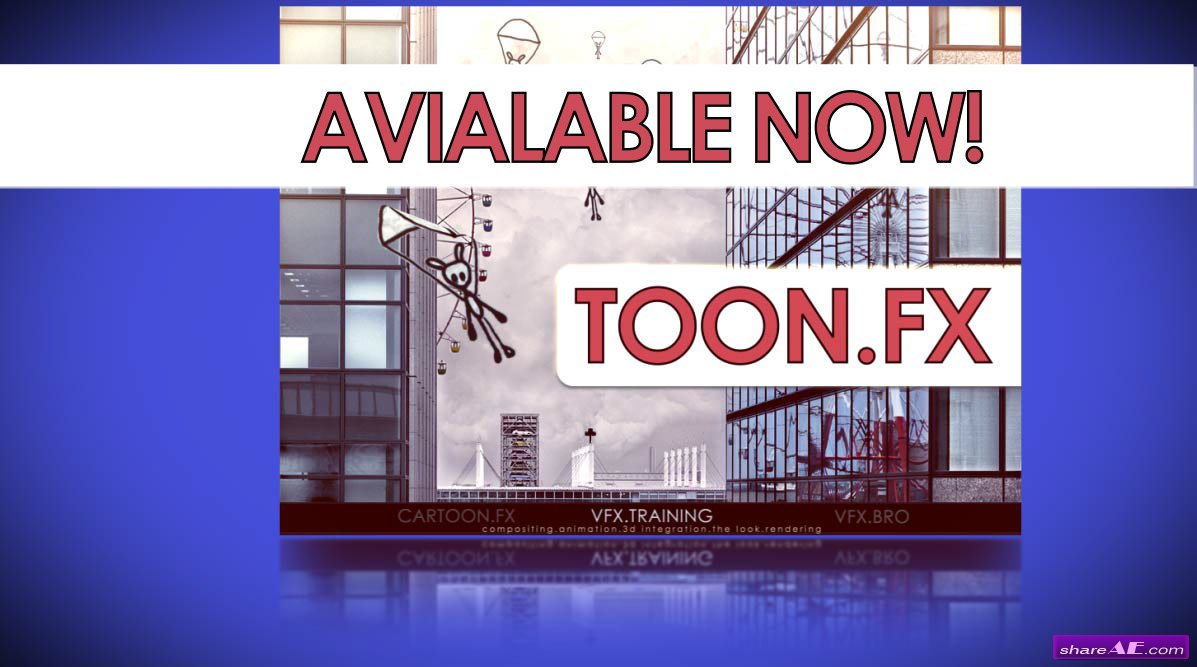
Toon.FX In After Effects (VFXbro)
eLearning
This training utilizes powerful tools found in Cinema 4d, Mocha (free with After Effects), and PFTrack. Although only After Effects is necessary additional software will bring your films to the next level!








